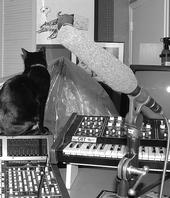Emily Carmen studied music at Manhattanville College, Berklee College of Music and jazz violin with distinguished jazz musician Jay Azzolina. She also credits much of her musical growth and inspiration to her close friend and mentor, the legendary jazz tenor saxophonist Illinois Jacquet.
Emily began playing violin at the age of five and has since added piano, guitar and synthesizers to her musical talents. Emily’s compositional debut was in high school when she performed an original classical piano piece in a solo concert. By age 14, her ability to perform in a variety of genres, including classical, jazz and rock violin, qualified her to become the youngest member of the Manhattanville College Community orchestra. At age 16, she composed the music score, choreographed and danced in a 12 person modern dance performance at the PACE program in Westchester New York.
Emily often plays her electric violin with NY rock bands in and around Greenwich village and has composed for and performed with the Manhattanville Jazz ensemble. In the summer of 2006, she composed, performed, arranged and recorded all original music for the New York City play “The First Woman†by Joshua Pangborn and is currently working on her debut CD of original material.
During her college years, Emily’s career path took an unexpected turn. As her compositional skills progressed, her professors at Manhattanville College advised her to finish her music education at the world-renowned Berklee College of Music in Boston. In her Junior year, she transferred to Berklee with the plan of becoming a film composer, in the footsteps of her idol, Danny Elfman.
Unfortunately, early in her first semester, she suddenly fell seriously ill and had to withdraw. At first, it was assumed she would return after a short medical leave of absence. However, her health continued to decline and puzzled doctors were unable to properly diagnose her illness. As weeks turned into months and months into years, her symptoms became worse and she was hospitalized several times.
As her health continued to decline, Emily began to lose faith that she would ever again be able to compose and play music, fearing instead that she would become permanently disabled by an illness no one could diagnose. A once aspiring composer/musician with strong determination, she slowly began to envision herself as instead becoming known as “the sick chick that lost her dream.â€
While coping with her failing health, trips to doctors, and chronic pain, Emily found solace in listening to music as an escape from her constant misery. Whenever she couldn't ignore the physical pain, the best distraction was listening to her favorite artists on her MP3 player. On days when she was not bed-ridden, she mustered up enough strength to sit up and teach herself how to play guitar. Eventually, she was able to sit at her computer and synthesizer keyboard to record the initial concepts for the songs she later re-recorded in her basement studio.
For the next three years, Emily spent days and nights creating music in her studio and, in the process, began to realize that her true passion was songwriting. During that time, she composed and arranged all original songs that incorporated the violin in a way that was rarely heard before in popular music. She spent days and nights listening to her favorite artists, such as Queen, The Red Hot Chili Peppers, No Doubt, Ben Folds, Nirvana, Prince and of course, the Beatles, all of whom had changed the course of contemporary music.
Emily reminisces, “I remember one night my dad brought home the Live Aid DVD. When I saw Queen’s performance and the incredible number of people who attended, I realized what an impact their music had on so many people. That’s when I knew I had to help people through my music. I was especially moved when I noticed that in Queen’s music video “These Are the Days of our Livesâ€, Freddie was not well but yet he still continued to play and sing and did it till the end. He was as much in love with being a musician as his fans were in love with him and Queen.â€
Emily was eventually diagnosed with a rare metabolic disorder called Porphyria. Along with the diagnosis came proper treatment, and a steady improvement in her health. Within a year after her diagnosis, she was able to gradually get back into a normal lifestyle, attending school and playing music. During her recovery, she spent most of her time in her music production studio learning how to use the equipment and composing music.
The events that occurred during the three crucial years of Emily’s illness had a major impact on her songwriting outlook. Instead of writing cheerful, cutesy girlish pop-tunes, the pain and suffering she endured pushed her to write deeper and darker material—an expression of how close she came to nearly losing it all.
Ironically, had Emily not become so severely ill, she would have never discovered her passion for composing/arranging/writing songs and working in a music studio. Oddly enough, the Porphyria caused her to change direction and pushed her to where she really belongs.
“I’ve always had a passion for wanting to help others; I just never knew exactly how to do it.†She once commented. “I knew that being in a profession outside of music was completely out of the question. Music is like water to my soul and without it, I wouldn't exist. Now that my life is back on track, my goal is to succeed in music and become an inspiration for others who fall ill and lose hope that they will ever achieve their dreams. I want to be an example that it’s possible to overcome even the worst of adversity.â€
